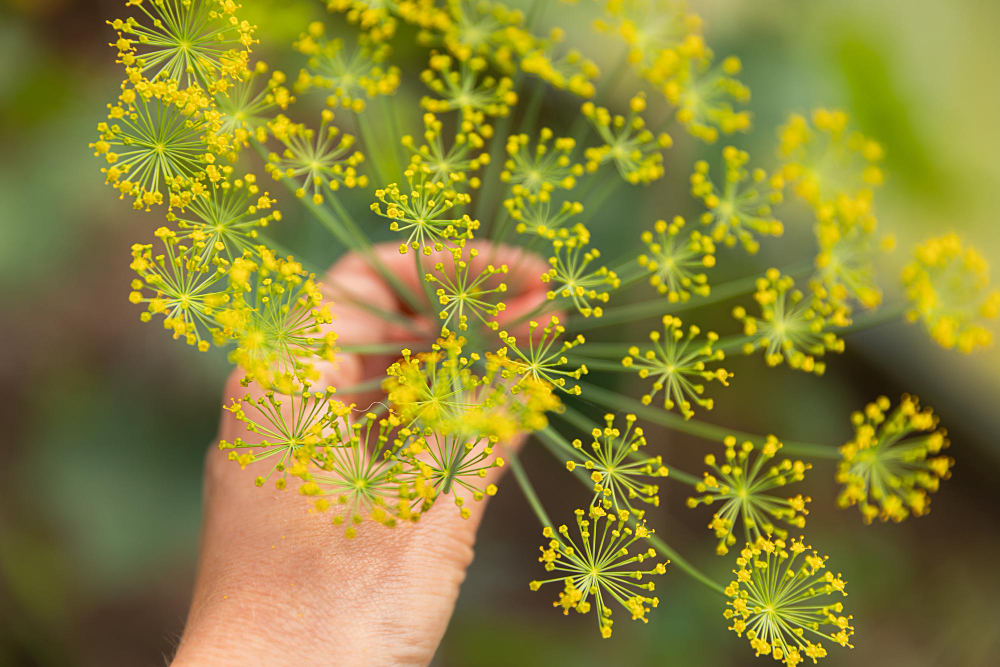
How Long do Ragweed Allergies Last
The Ragweed plant is a widespread weed across various regions in the United States. It takes on various forms, such as flowers, leaves, and stems, making it essential to recognize its diverse plant structures. You can find it growing in gardens, parks, and along roadsides, making it challenging to avoid.
During late summer and early fall, Ragweed unleashes its pollen into the air, triggering allergic reactions in individuals who are sensitive to the substance. Weather conditions such as wind amplify the pollen counts, increasing the difficulty of avoiding it during peak season.
Ragweed pollen is microscopic substance and can travel vast distances through the air, causing seasonal allergies, also known as hay fever.
Exposure to the nose, throat, or eyes can lead to an array of unpleasant allergy symptoms. Awareness of this invasive weed and its associated health impacts is crucial in maintaining a healthy and comfortable lifestyle.
The following article gives insight into the duration of ragweed allergies and presents a wealth of knowledge on various aspects of the condition, including symptoms, underlying causes, available treatment options, and resources.
What Are The Symptoms Of Ragweed Allergies?
It’s important to note that the symptoms of ragweed allergy can be affected by various factors such as geographical location and weather conditions.
This means that your experience with ragweed allergy may differ throughout the year. Nonetheless, the most typical signs of ragweed allergy are
Stuffy or runny nose
The presence of ragweed pollen can cause discomfort in the nasal passages, resulting in a possible blockage or discharge from the nose.
Sneezing
Individuals who suffer from allergies are more prone to frequent sneezing when exposed to ragweed pollen.
Itchy eyes
A significant number of individuals undergo irritation, discomfort, and inflammation in their eyes as a consequence of being exposed to ragweed pollen.
Asthma flares
It is possible for individuals with allergies to ragweed to experience an exacerbation of their asthma symptoms. This can result in an increase in coughing, wheezing, or shortness of breath.
What Causes A Ragweed Allergy?
The root cause of ragweed allergies is a reaction from the immune system triggered by ragweed pollen. However, there are additional allergens that could exacerbate the symptoms, such as
Dust mites
Household dust is home to minuscule creatures known as dust mites, which have the ability to exacerbate or initiate symptoms of ragweed allergies.
Mold
It is possible to find mold spores in both indoor and outdoor environments, which can worsen the symptoms of allergy caused by ragweed.
Pet dander
People with an allergy to ragweed may find that their symptoms worsen when they come into contact with pet dander. This can lead to more severe reactions, making it important to take steps to minimize exposure to these allergens.
How Is A Ragweed Allergy Treated?
If you suspect that your body may not take kindly to ragweed, it’s worth booking an appointment with your doctor at Frontier Allergy .
There are a variety of tests available that can help you determine if you’re allergic to this plant. In some cases, your doctor may refer you to an allergist for further testing.
Two common allergy tests are skin prick tests and blood tests.
Skin prick tests involve exposing your skin to different allergens and checking for any signs of an allergic reaction like redness or swelling.
Blood tests, measure the amount of IgE antibodies in your blood that are specific to ragweed or other allergens.
While skin prick tests are generally considered more accurate, blood tests can be helpful in certain situations.
Whatever test you decide to take, it’s important to take your symptoms seriously and seek medical advice if you’re not feeling your best. With the right diagnosis and treatment, you can get back to enjoying all the joys of life without worrying about allergies holding you
There are various methods available to manage allergies caused by ragweed, which may comprise of
- To minimize the risk of inhaling ragweed pollen, it is advisable to limit outdoor activities during the peak pollen season and employ air purifiers indoors.
- The utilization of antihistamines, whether prescribed by a medical professional or readily available over-the-counter, can provide relief from symptoms such as sneezing and itching.
- One effective method to ease nasal congestion and irritation is through the application of nasal sprays or rinses. These products work by delivering a targeted dose of medication or saline solution directly into the nasal passages, effectively reducing inflammation and swelling.
- This can provide significant relief for individuals suffering from allergies, sinus infections, or other respiratory conditions. By incorporating nasal sprays or rinses into your daily routine, you can experience enhanced comfort and improved breathing.
- Immunotherapy, commonly referred to as allergy shots, are a viable treatment option for individuals with an allergic reaction to ragweed pollen. This medical procedure works to desensitize the immune system, gradually reducing the severity of symptoms associated with ragweed exposure.
By introducing small, controlled doses of the allergen into the body, the immune system can gradually adapt and build up a tolerance, effectively reducing the body’s adverse response to ragweed pollen.
How Does Long To Take Recover From Ragweed Allergies Last
Individuals experience different lengths of ragweed allergies. Typically, symptoms can occur for a few weeks to several months which align with the ragweed pollen season.
Nevertheless, effective management and treatment can provide relief and control symptoms throughout this period.
Frequently Asked Questions
What is the treatment for ragweed allergy?
There are numerous ways to address ragweed allergies, including utilizing antihistamines, administering nasal sprays, employing immunotherapy, and steering clear of pollen exposure.
Should I move to get relief from my ragweed allergy?
Although relocating to a new area may offer brief respite from ragweed allergies, it is not a permanent remedy. Ragweed is prevalent and each location may have its unique set of allergens.
How do I stop being allergic to ragweed?
Although it is difficult to eradicate allergies completely, there are ways to effectively handle ragweed allergy symptoms. These include minimizing exposure, utilizing appropriate medication, and pursuing allergy immunotherapy for lasting relief.
What time of year is ragweed pollen highest?
The concentration of ragweed pollen reaches its peak during late summer and early autumn, with August and September being the months with the highest levels in multiple regions.
Where Can I Get More Information About Ragweed Allergies?
For more information about ragweed allergies, you can visit the link https://www.frontierallergist.com/
Should you require more information regarding your specific requirements, Dr. Reshamwala would be delighted to meet with you and provide answers to any inquiries you may have.
Kindly get in touch with us at 512-382-1933 or send us an email at clinic@frontierallergist.com to book an appointment at your earliest convenience.

Written/Reviewed by: Dr. Neha Reshamwala
NPI number: 1780874578
Page last reviewed: 03/11/2024


 All blog posts
All blog posts





